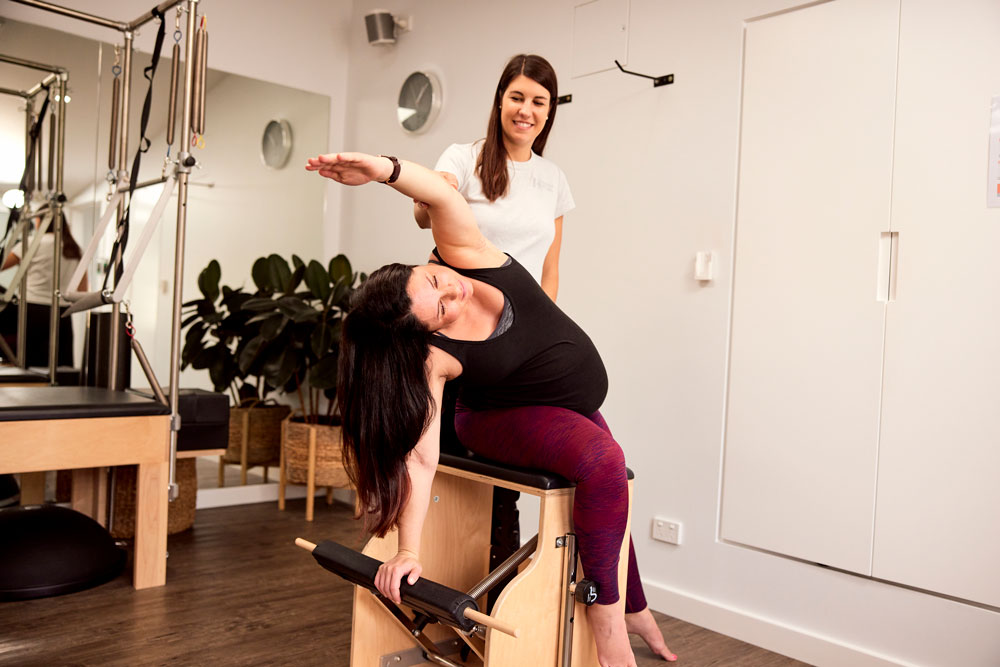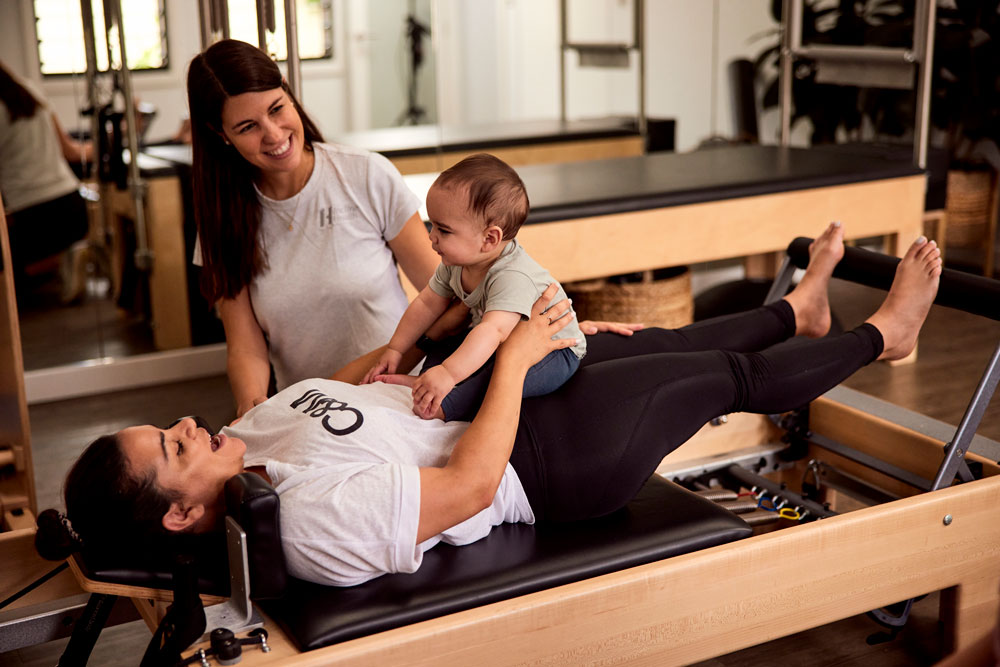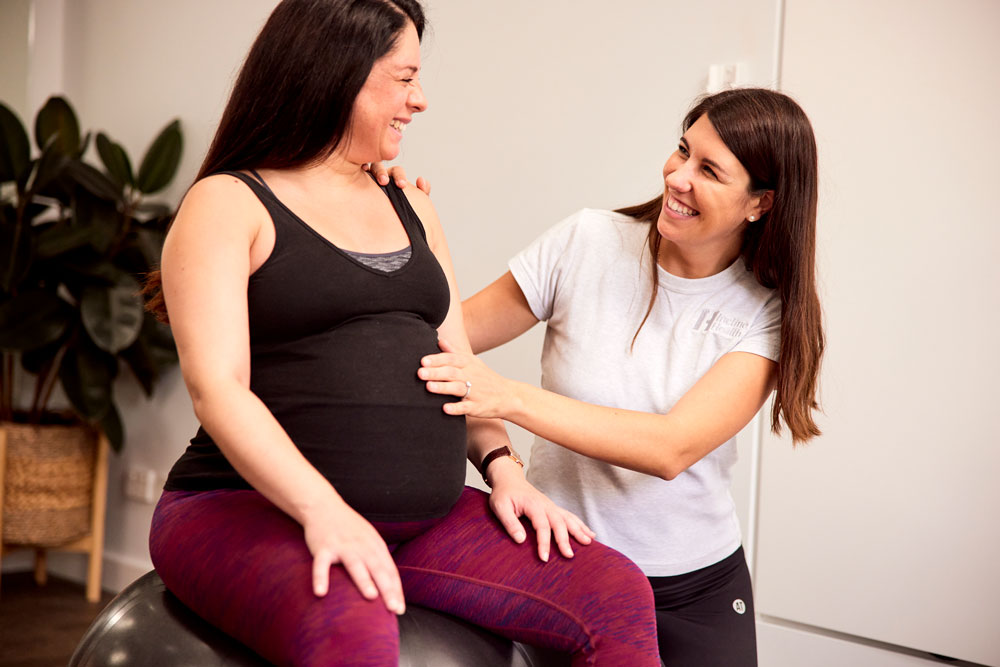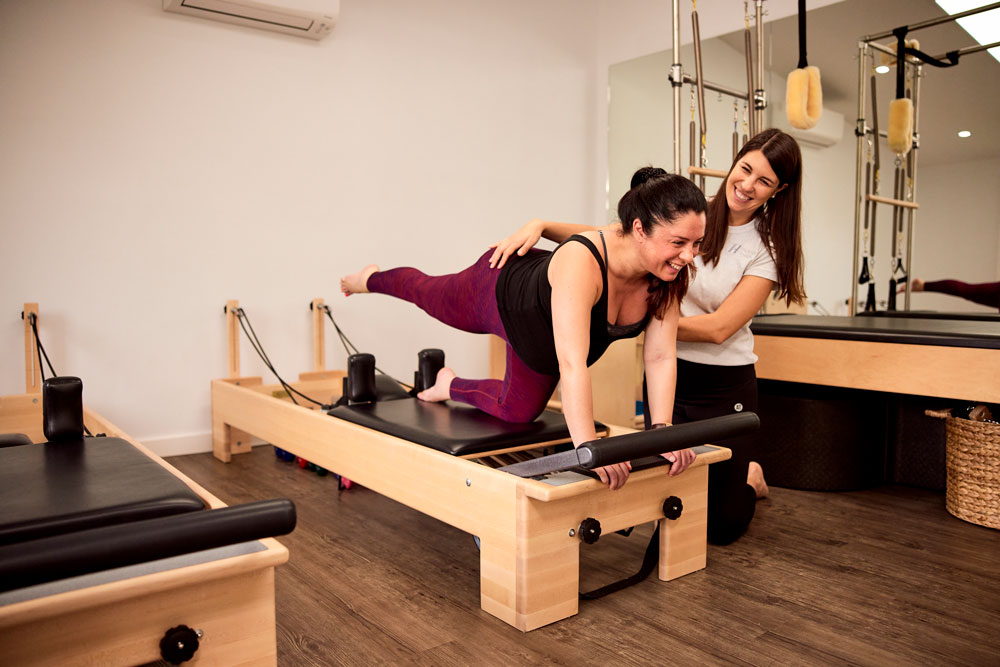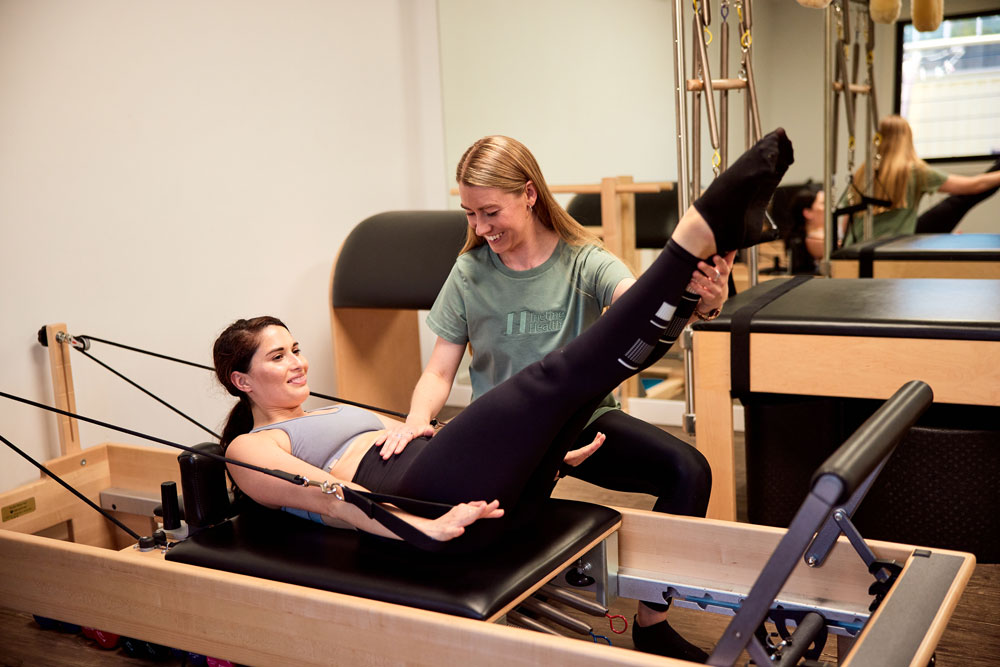Just Given Birth? Your Expert-Guided Postpartum Rehabilitation Plan
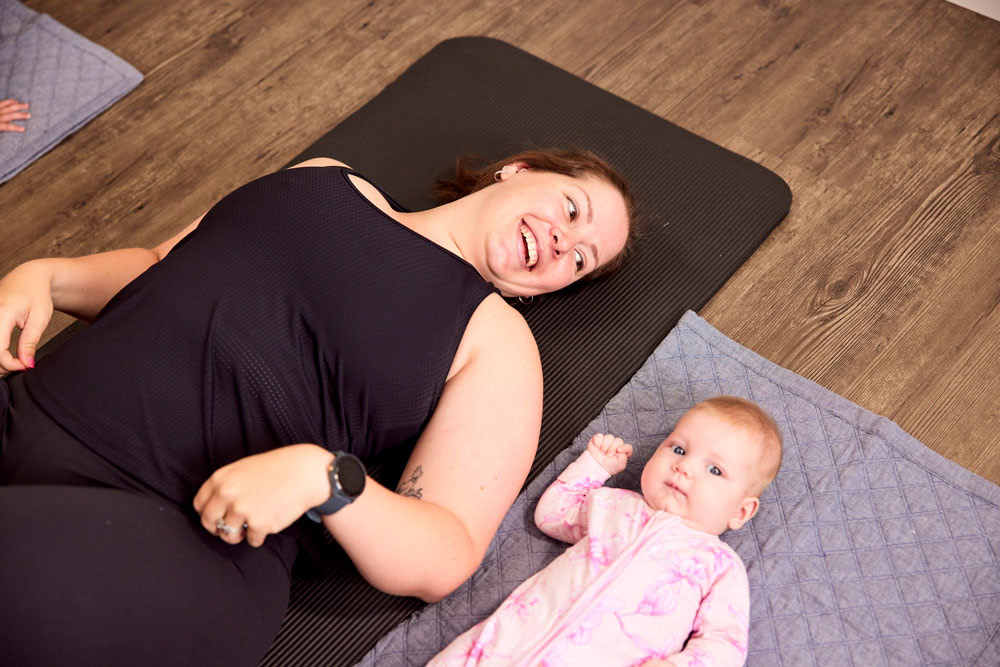

Giving birth is a life-changing experience that is a crucial part of your postpartum recovery with a proactive approach , and while it’s filled with joy and love, it can also be physically and emotionally challenging. From the moment your baby arrives, your body begins a process of recovery—and just like pregnancy, that journey deserves expert care, patience, and support.
Every new mum’s journey is unique. You may be navigating sore muscles, hormonal shifts, sleep deprivation, and the overwhelming responsibility of caring for a newborn. It’s a time when your postnatal body is healing from the demands of pregnancy and birth while adapting to a new life with your baby. Whether your birth was smooth or involved complications, your body has been through an incredible transformation, and it’s important to honour that with proper care.
Why You Need a Structured, Safe, and Guided Postpartum Plan
The postpartum period, often called the “fourth trimester,” is a time of profound change. A well-structured approach, safe, and expert-guided postpartum rehabilitation plan can make all the difference in how you heal, regain strength, and adapt to your new normal, ultimately supporting your overall well being .
Why Postpartum Rehabilitation Matters
What is Postpartum Physical Therapy?
Postpartum physical therapy is a specialised approach to supporting women’s recovery after childbirth. It focuses on restoring strength, function, and mobility, particularly in the pelvic floor, core muscles, and musculoskeletal system. It’s a comprehensive service that addresses the unique needs of postpartum bodies, helping women return safely to movement and reduce discomfort.
Why is Postpartum Physiotherapy Important?
Without proper rehabilitation, many women experience long-term issues such as pelvic floor dysfunction, diastasis recti, and chronic pain. Early support through physiotherapy can prevent complications and promote a stronger, healthier future, which is incredibly important for maintaining mental health . It helps women feel empowered and informed as they rebuild their strength, manage symptoms related to sexual health , and avoid setbacks.
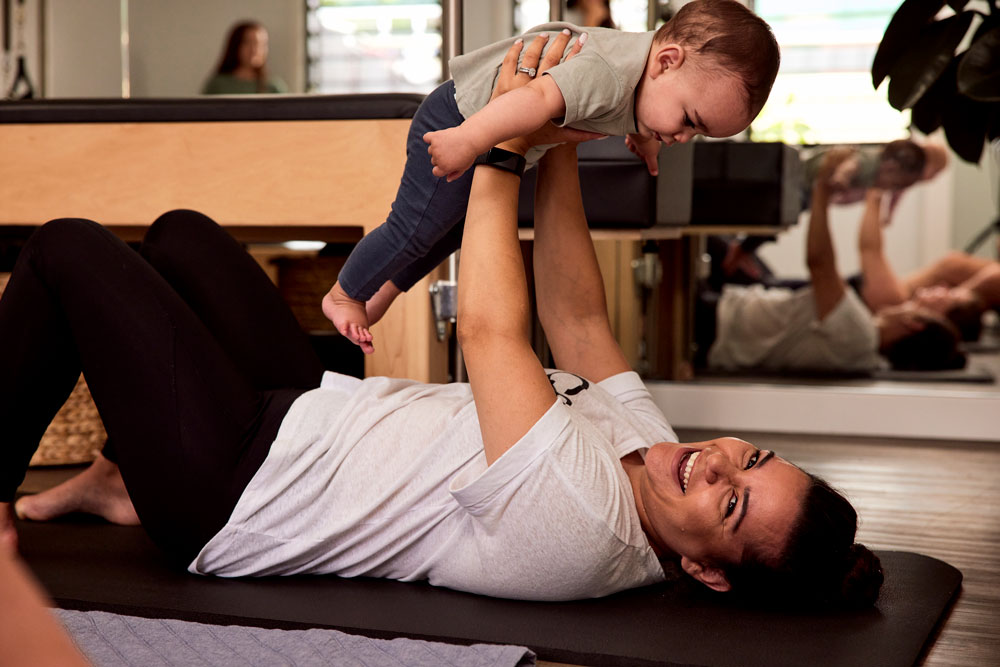

Common Postpartum Challenges
After birth, it’s common to face challenges like physical activity :
- Pelvic floor weakness or incontinence
- Abdominal separation (diastasis recti)
- Back, hip, or pelvic pain
- Fatigue and mental overwhelm
The Link Between Rehab and Long-Term Wellness
Investing in postpartum rehabilitation today, especially for caesarean section recovery, is an investment in your long-term health. Addressing issues early can help prevent chronic conditions, support better movement, and improve quality of life for years to come. A solid postpartum plan can also reduce the risk of pelvic organ prolapse, persistent pain, and instability that can affect future pregnancies or daily life.
Top Tips for the First Few Weeks After Delivery
Leg Rolls
Gently roll your legs side-to-side while lying down to encourage circulation and reduce stiffness. This simple movement helps prevent swelling and supports venous return, which is especially important in the early days after birth.
Horizontal Rest
Lie flat on your back or side when possible to relieve pressure on your pelvis and lower back. Taking time to rest in a supported, neutral position helps ease tension and create space for your body to heal.
Gradually Increase Walking
Start with 5–10 minutes of walking a few times per day in the first 1–2 weeks. Gradually increase by 5 minutes each week as you feel stronger, but always listen to your body. Gentle walks support circulation, aid digestion, and lift your mood—but pacing is key.
Limit Lifting
Avoid lifting anything heavier than your baby in the early weeks to protect your healing tissues. Ask for help where possible and use proper lifting techniques when you do need to lift.
Plan Rehab with Professionals
Engage a pelvic floor physio, clinical Pilates instructor, or chiropractor early on to guide your safe recovery journey and recommend appropriate exercises . Having a team by your side makes a huge difference in ensuring you’re moving in a way that supports healing.
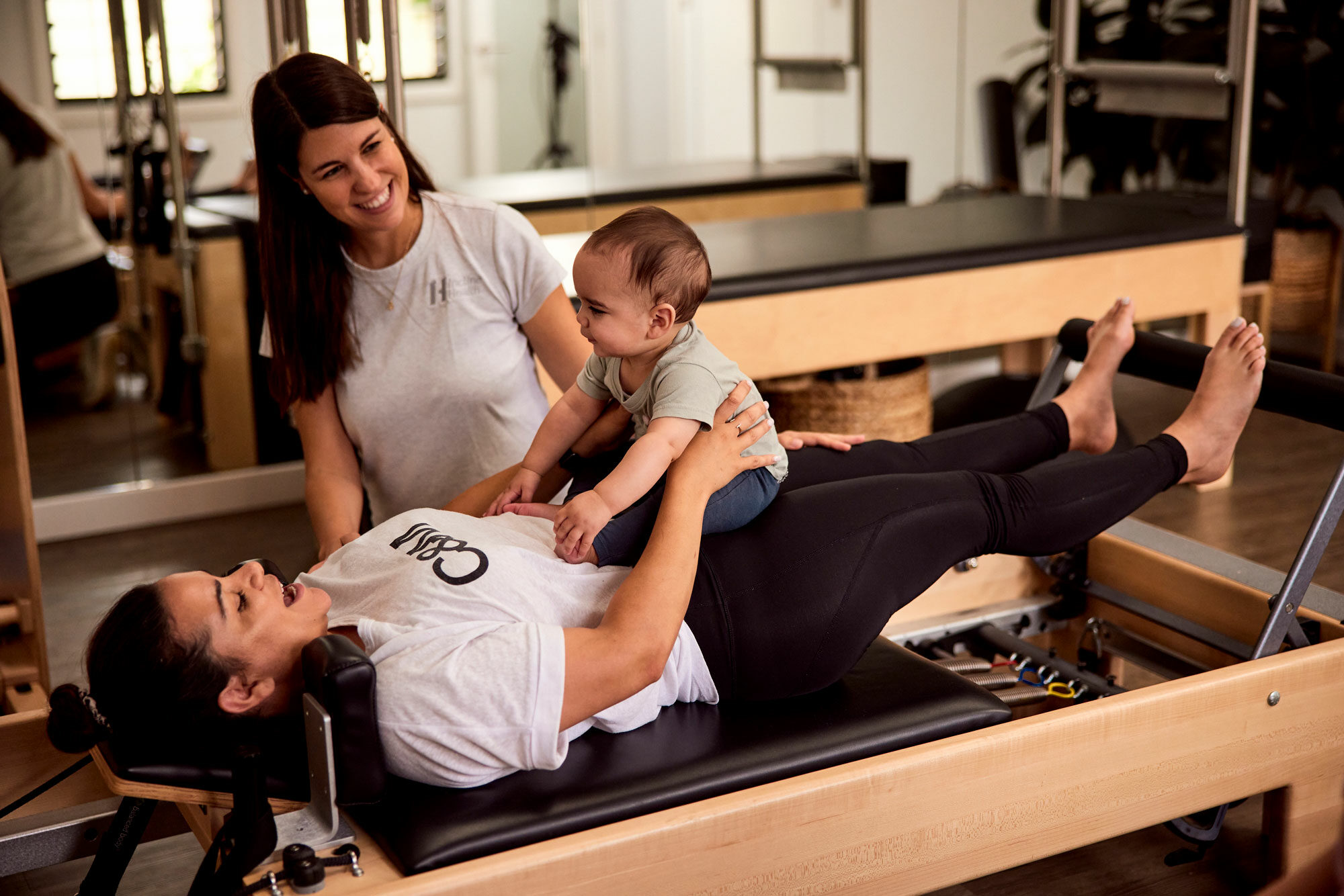

Bowel Movements
Prioritise hydration, fibre-rich foods, and gentle pelvic health engagement during bowel movements to avoid straining. A relaxed jaw and slow, deep breaths can also help ease the process.
Support Garments
Compression shorts or postpartum wraps can provide gentle support for your core and pelvis as tissues heal. They’re not essential for everyone, but many women find them helpful, especially after a caesarean birth.
Gradually Improve Pelvic Floor Strength
Start with gentle activations to help recover :
- Hold for 3–5 seconds
- Repeat 5–10 times, 2–3 times per day
Build up gradually, aiming for 10-second holds by 6 weeks. Consistency is more important than intensity—listen to your body and never force a contraction to build muscle strength .
Deep Core Exercises
Incorporate gentle diaphragmatic breathing and transverse abdominis engagement (core bracing) from the first week postpartum, as long as it feels comfortable. This forms the foundation of deep core safe reconditioning.
When to Start Your Postpartum Rehab Journey
The Importance of Medical Clearance
Before starting any structured rehab, ensure you receive medical clearance at your 6-week postnatal check. This is a vital milestone in safe recovery, incorporating horizontal rest. , as advised by your healthcare provider especially if you had a caesarean or experienced birth complications.
Custom Timelines Based on Delivery Type
- Vaginal Birth: You may begin gentle pelvic floor activations and breathwork within days, but always listen to your body.
- Caesarean Birth: Allow extra time for incision healing. Gentle breathing and pelvic floor work can still begin in the first weeks, but more active exercises may start after 6 weeks with clearance.
The Stages of Pregnancy Recovery
Stage 1: Rest and Recovery (Weeks 1–6)
Focus on Healing and Breathwork
Prioritise rest, hydration, and deep breathing to support circulation and healing. Let go of pressure to do more—you’re already doing plenty by caring for your baby.
Gentle Pelvic Floor Activations
Start gentle pelvic floor squeezes within days of birth, focusing on connection, not intensity. Imagine lifting and releasing, like a gentle hug from within.
Posture and Feeding Ergonomics
Maintain good posture while feeding your baby—use cushions for support, keep your shoulders relaxed, and avoid hunching. This prevents tension in your neck, shoulders, and back.
Stage 2: Rebuilding the Foundation (Weeks 6–12)
Diastasis Recti Screening and Core Work
Have your diastasis recti checked by a pelvic floor physiotherapist. Begin safe core exercises such as pelvic tilts, heel slides, and gentle glute bridges that enhance your pelvic floor muscles connection . Consistent practice helps close the gap and restore abdominal strength.
Introduction to Gentle Strengthening
Start low-load exercises like wall push-ups, bodyweight squats, and banded rows. Progress gradually under professional guidance, and avoid high-impact movements for now.
Consistency Over Intensity
In postpartum rehab, slow and steady wins the race. Focus on regular, gentle movement rather than pushing too hard. Your core and pelvic floor need time to rebuild, and consistency will get you there.
Stage 3: Returning to Functional Movement (3–6 Months)
Increase Load-Bearing and Aerobic Activity
Add light weights, resistance bands, and short walks or light jogs as tolerated to assist in building abdominal muscles strength .
What are the Benefits of Postpartum Physical Therapy?
Postpartum physiotherapy supports:
- Pain relief (lower back, hips, pelvis)
- Abdominal wall health.
- Improved mobility and strength with exercise program
- Posture correction
- Pelvic floor function and continence
- Reduced risk of long-term complications
- Faster recovery and confidence in movement
- Better sleep and mental well-being
Key Postpartum Support Strategies for New Mothers
Incline Health’s Pregnancy and Postnatal Rehabilitation expert, Stephanie, shares some strategies that helped her through her postpartum journey:
- Prioritise small, daily wins over perfection of postpartum period.
- Communicate openly with your partner and support team.
- Use a pelvic floor physiotherapist for early guidance on pelvic floor exercises to strength pelvic floor muscles.
- Join mothers’ groups for connection and shared experience.
- Accept help with meals, cleaning, and baby care.
Understanding The Fourth Trimester
The first 12 weeks postpartum involve significant physical recovery while adapting to new routines, sleep deprivation, and bonding with your baby as you navigate your postpartum life . It’s a time for healing, patience, and adjusting for new mothers to a new chapter of pelvic floor recovery.
Assemble Your Postpartum Healthcare Team


Your ideal team may include:
- A GP for overall health
- An obstetrician or midwife for postpartum care
- An IBCLC for breastfeeding support
- A pelvic floor physiotherapist for safe rehab
- A postnatal exercise specialist for core and pelvic floor strengthening
- A chiropractor or osteopath for musculoskeletal alignment
Ensure Solid Communication Support
Discuss expectations with your partner, attend birthing and first aid courses, and join local mothers’ groups for encouragement and advice of pelvic floor exercises.
Know Your Recovery Priorities
Focus on:
- Accepting help—it’s okay to delegate tasks.
- Bonding with your baby—the rest can wait.
- Own pace and core muscles and deep core muscles.
- Assessment before resuming exercise.
- Gentle, guided return to physical activity.
FAQs About Postpartum Rehab
What should I expect at my 6-week postpartum appointment with a pelvic floor physiotherapist?
A thorough assessment of pelvic floor strength, core function, and movement patterns.
Is it worth seeing a pelvic floor physio before 6 weeks?
Yes! They can provide early guidance on gentle breath work, posture, and pelvic floor awareness.
What can a pelvic floor physiotherapist provide that my GP can’t?
Specialised assessments and tailored rehab plans for pelvic floor and core health.
How long does recovery take?
Every journey is unique—many women feel stronger by 3–6 months, but healing can take longer depending on the birth and individual factors.
What changes in my recovery if I had complications?
Healing may take longer. Extra support from your physio is essential to address specific challenges.
What if I feel pain during exercises?
Stop and consult your physiotherapist. Pain is a signal to adjust your plan.



